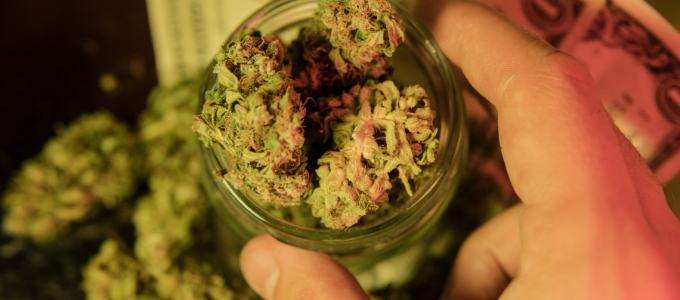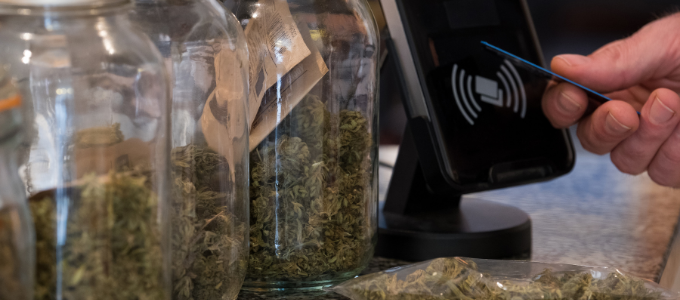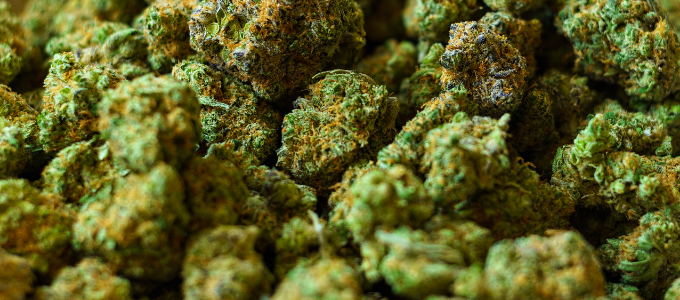
DEA Considering Whether to Reschedule Marijuana From Schedule 1
Posted by CANNASaver on Sunday, 26 June 2016 in Canna Blog
DEA to Reclassify Marijuana: Official Confirms Looming Marijuana Decision
In a recent interview with aNewDomain, DEA staff coordinator Russ Baer confirmed reports that the DEA is considering reclassifying marijuana off the Schedule 1 list of controlled substances, and indicated that the enforcement of marijuana policy is not a top priority for the federal agency. Although stopping short of offering any specific details about how exactly marijuana might be reclassified, Baer did confirm the genuineness of a recently leaked letter from the DEA to the senate that stated the agency was hoping to reach a decision on whether or not to reclassify marijuana by mid-year. Baer downplayed the mid-year estimate though, stating, “We aren't holding ourselves to any artificial timeframe.”
While an official decision is still yet to be announced, speculation is strong that the DEA will indeed reclassify marijuana from a Schedule 1 drug to a Schedule 2 drug sometime this summer. Recently, an anonymous attorney for the DEA was reported by the Santa Monica Observer as stating that the DEA would soon reclassify marijuana to the schedule 2 list, sending marijuana industries and cannabis communities into watch and wait mode. The DEA's decision to reclassify marijuana to schedule 2 could have a significant impact on both the recreational marijuana and medical marijuana industries, and feelings are mixed as potential effects and consequences are still unclear.
Reclassifying marijuana from a Schedule 1 drug to a Schedule 2 drug makes medical marijuana legal at the federal level. This means that residents of any state could obtain a medical prescription for marijuana and be able to legally use it without fear of criminal charges, neither at the state nor federal level. “We’re not going to go chase after the mom who picks up cannabinol (CBD) in (one) state for her epileptic child and takes it to another state … ,” Baer stated.
A reclassification to Schedule 2 would also remove many of the current legal obstacles to cannabis research, which could in turn help pave the way for new medical advances and discoveries. Baer explained, “We want there to be research on marijuana and its component parts, there needs to be (more) studies about both the benefits and the adverse effects about marijuana... We want to remove the roadblocks for (cannabis research.)”
While some marijuana activists that have been pushing for medical legalization at a federal level see a DEA decision to reclassify marijuana to Schedule 2 as a step in the right direction, others feel it doesn't go far enough and in fact could greatly inhibit the progress that's been made towards achieving full-scale marijuana legalization for recreational as well as medical purposes. The DEA divides controlled substances into five categories, or Schedules, based on accepted medical benefits and abuse potential. Drugs on the Schedule 1 list, where marijuana currently resides, are considered the most dangerous, with the highest potential for abuse and health risks, and no known medical benefits. Schedule 2 drugs are acknowledged as having some medical benefit, but they are still considered dangerous with high abuse and health risk potentials. The Controlled Substance Act is worded in a way that specifies Schedule 2 drugs can't be dispensed without a prescription, so a reclassification of marijuana to Schedule 2 could potentially destroy the recreational marijuana industry as we know it. It all depends on the specifics of how the drug is classified and how regulations are applied. As an official announcement on reclassifying marijuana is awaited, all eyes are on the DEA and many fingers are crossed that the details of the decision will allow for states to make their own choices regarding recreational marijuana.
Continue Reading












![(each) HBH [.5g] (each) HBH [.5g]](/rails/active_storage/representations/proxy/eyJfcmFpbHMiOnsiZGF0YSI6MTU0NTYzMSwicHVyIjoiYmxvYl9pZCJ9fQ==--97bd860b9bf148bbb4664d245f00f77e16c66f46/eyJfcmFpbHMiOnsiZGF0YSI6eyJmb3JtYXQiOiJqcGVnIiwicmVzaXplIjoiNDYyIHggMzE1IiwiY29udmVydCI6IndlYnAifSwicHVyIjoidmFyaWF0aW9uIn19--ec16dfdba4bfa2885716a685324bbb155d297de3/440991985_80ffdf3d-e58a-4c96-b7ef-dc292d7b54df.jpeg)











